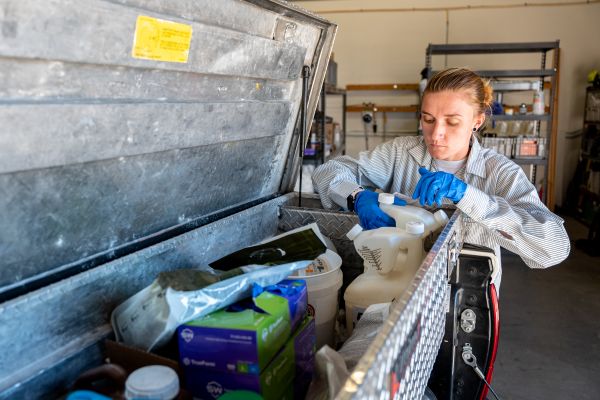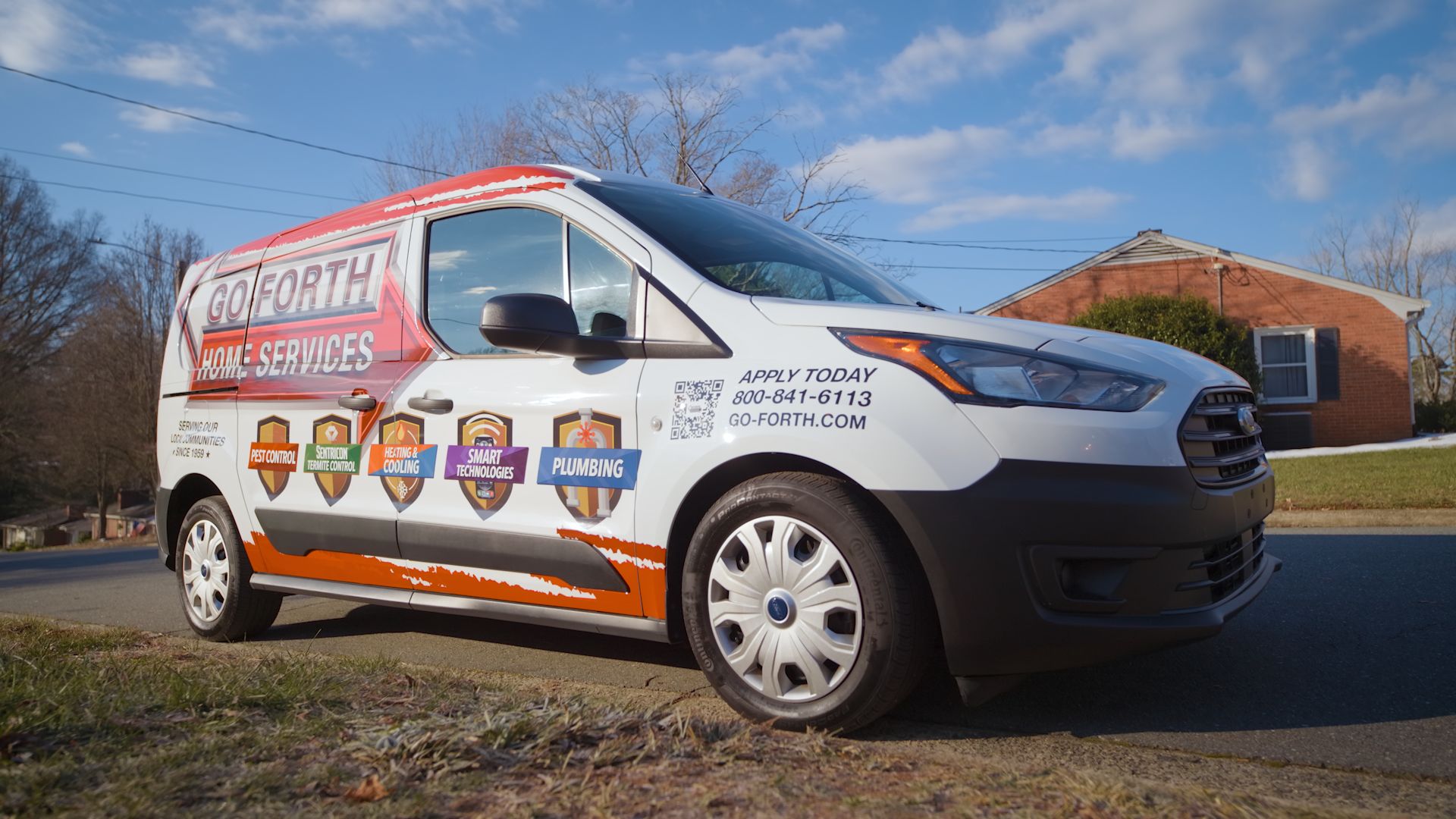Ohio Pest Control License & Certification (Updated in 2025)

Getting a pest control license in Ohio involves several steps, including choosing the correct license type, understanding the rules and regulations, and taking exams administered by the Ohio Department of Agriculture (ODA).
Whether you want to be a commercial or private pesticide applicator or run a pest control business, you need to know Ohio’s licensing process inside out.
An application fee covers the application and exam costs for getting a pest control license in Ohio.
This guide covers Ohio pest control license types, eligibility criteria, exam requirements, licensing cost, and Ohio’s reciprocity agreements. It also includes information on continuing education and state-specific rules for pest control work.
By following this guide, you will learn how to get your Ohio pest control license and launch your pest management career or business.
What Is a Pest Control License?
A pest control license is a certification issued by Ohio that permits individuals and businesses to legally and professionally apply pesticides. The Ohio Department of Agriculture (ODA) regulates pest control licensing to ensure applicators and pest control operators follow strict safety standards and environmental regulations.
Ohio has several types of licenses, depending on the type of pesticide used, including Commercial Applicator, Private Applicator, and business-related licenses. To stay compliant, each license type requires specific training, exams, and ongoing continuing education. Applicator certification is important for responsible pesticide use as it involves rigorous training and exams to qualify individuals for safe and effective pest management.
Choosing the proper Ohio pest control license is important for anyone looking to get certified in pest management.
Do You Need a Pest Control License in Ohio?
In Ohio, you must have a valid pest control license issued by the Ohio Department of Agriculture if you:
Apply restricted-use pesticides.
Perform pest control services commercially.
Apply pesticides as part of your job.
Even individuals applying restricted-use pesticides on their agricultural land must have a Private Applicator License. It is important to apply RUPs correctly and get the necessary certification to comply with federal and state regulations. Operating without the proper pest control license can result in penalties, fines, or legal consequences.
What Are the Licensing Requirements for Pest Control Contractors in Ohio?
Pest control field representatives in Ohio must get the right Commercial Pesticide Applicator License from the Ohio Department of Agriculture before offering pest control services professionally. Private applicators who apply restricted-use pesticides to produce agricultural commodities on their owned or leased properties must follow specific rules and regulations.
To get licensed in Ohio, pest control contractors must:
Complete ODA-approved certification programs or have adequate industry experience.
Pass the state-administered pesticide licensing exams, including the core exam and category-specific tests, with a minimum score.
To get a Commercial Pesticide Business License (required for each business location offering pest control services), you must show proof of financial responsibility, such as liability insurance.
Employ certified technicians and ensure each employee meets the training and licensing requirements set by the ODA.
These requirements ensure contractors meet Ohio’s strict safety, environmental, and regulatory standards for pesticide applications.
What Are the Different Types of Pest Control Licenses in Ohio?
Ohio pest control licenses issued by the Ohio Department of Agriculture vary based on the type of pesticide application. To stay compliant, each license type requires specific training, exams, certifications, and ongoing continuing education.
A licensed pest control business must follow these requirements to remain compliant and professional.
Below are the main pest control licenses in Ohio:
Commercial Applicator License: Required for individuals who apply pesticides for hire or compensation. Applicants must pass the core exam plus at least one category-specific test.
Private Applicator License: For individuals who apply restricted-use pesticides on their own or their employer’s agricultural property.
Pesticide Business License: Required for any pest control company offering commercial pesticide application services. Companies must show proof of financial responsibility, such as liability insurance.
Pesticide Solicitation Business License: For businesses that solicit pesticide application services but do not apply pesticides themselves.
Pesticide Dealer License: Required for businesses selling restricted-use pesticides directly to licensed applicators.
Each license type ensures Ohio pest control professionals have the training and certifications to manage safely and effectively. For more information, review the Ohio Pesticide Applicator License Categories.
What Are the Steps to Get a Pest Control License in Ohio?
Getting a pest control license in Ohio involves completing specific training, an exam, and regulatory requirements set by the Ohio Department of Agriculture.
Step 1: Determine the Appropriate License Type
Identify whether you need a Commercial Applicator License, Private Applicator License, or a business-related license based on the type of pest control services you will offer.
Limited certification categories are available for specific pest control services, outlining the qualifications and restrictions for each.
Step 2: Complete Required Training or Gain Relevant Experience
Applicants must complete ODA-approved training programs or have documented work experience in pest management.
Make sure to document your qualifications and experience accurately.
Step 3: Schedule and Take Licensing Exams
Schedule your exams through the Ohio Department of Agriculture. You must pass the core exam (covering pesticide laws, safety, and environmental regulations) and category-specific tests for your license type.
Study manuals and reference materials are available to help you prepare. Once you pass these exams, you will be eligible for certification and can apply for different types of pesticide licenses.
Step 4: Submit Your License Application and Fees
After passing the exams, submit your application and fees through the ODA licensing portal. It is vital to get the necessary certificate to apply pesticides and legally manage nuisance wildlife.
Commercial applicators must show proof of financial responsibility, usually liability insurance.
Step 5: Obtain a Pesticide Business License
If offering commercial pest control services, you must also apply for a Pesticide Business License, which includes proof of liability insurance and business registration with at least one licensed commercial applicator.
Step 6: Maintain Certification Through Continuing Education
Licensed applicators must complete continuing education units (CEUs) before their licenses expire to avoid renewal penalties or retaking exams. Ohio licenses are renewed every three years, with specific CEU requirements based on your license category.
Understanding the paperwork and fees involved in maintaining certification, including the importance of renewals, is key to staying compliant.
What Is the Mean Salary for a Pest Control Technician in Ohio?
According to Talent.com, the average annual salary for a pest control technician in Ohio is approximately $39,520. This figure can vary based on experience, location, and employer.
For example, Indeed reports an average hourly wage of $19.81, or about $41,205 annually. ZipRecruiter lists the average hourly pay at $19.63, translating to roughly $40,830 annually.
What Ohio Business Owners Need to Know
To start a pest control business in Ohio, you must get a Commercial Pesticide Applicator License and a separate Pesticide Business License from the Ohio Department of Agriculture. Each business location must be individually licensed, with at least one licensed commercial applicator per location.
To ensure safe and effective practices, all pesticide applications must be done under the supervision of qualified individuals.
Also, commercial pest control businesses in Ohio must:
Show proof of liability insurance meeting ODA financial responsibility requirements.
Keep detailed records of pesticide applications and verify that all technicians were licensed correctly.
Comply with state and federal pesticide regulations, including worker safety and environmental protection guidelines.
Businesses may benefit from pest control management software, such as FieldRoutes, which helps with daily operations, scheduling, invoicing, and regulatory compliance tracking.
How Much Does It Cost To Get A Pest Control License?
Ohio pesticide licensing fees are as follows:
Commercial Applicator License: $35 (3 years)
Private Applicator License: $30
Pesticide Business License: $35
Pesticide Solicitation Business License: $35
Pesticide Dealer License: $35
All fees are payable through the ODA licensing portal.
How Long Does It Take To Get A Pest Control License?
Licensing time depends on your ability to complete training, pass exams, and submit required documents. With prompt scheduling and submission, the process usually takes a few weeks.
Training and Study: Time depends on individual preparation for the core and category-specific exams.
Examination: Scheduling and passing the required exams.
Application Submission: Complete and apply with the appropriate fee.
The process can be completed in a few weeks with good preparation and prompt action.
Ohio Pest Control Training Programs And Schools
Aspiring pest control professionals in Ohio can find several state-approved training programs to meet licensing and certification requirements.
These programs ensure applicators understand pesticide safety, application methods, and regulatory compliance under Ohio Department of Agriculture standards.
Ohio State University Extension – Pesticide Safety Education Program (PSEP)
In-person and online training for private and commercial applicators.
Exam preparation materials, core and category-specific content.
Ohio-specific pesticide laws, safe handling practices, and environmental protection guidelines.
Certified Training Institute
It offers ODA-approved online courses for multiple certification categories. These courses can help pest control professionals enhance their knowledge and skills.
Includes CEUs for license renewal.
Covers ornamental and turf pest control, right-of-way applications, and general safety.
PestWeb ProTraining
On-demand and live webinar training for CEU credit.
Keeps professionals up to date on Ohio regulations and best practices in pest management.
This is for new and experienced applicators seeking recertification or additional licensing categories.
These programs are the resources to prepare for Ohio pesticide exams and maintain licensure through CEUs.
Ohio Licensing Exam Details
To become a licensed pest control applicator in Ohio, candidates must complete certification, pass required exams, and meet ODA regulations. This ensures all pesticide applicators operate safely and comply with state and federal laws.
Certification Requirements
Before applying for a license, individuals must pass both the core exam and one or more category-specific exams, depending on the type of pest control services they will offer.
Pesticide certification is required for employees who handle pesticides to ensure they are trained in safety protocols and emergency procedures. Pesticide applicator certification is crucial for safe and effective use of pesticides and insecticides, as many states have specific licensing requirements for pest control professionals.
Certification categories in Ohio are:
Agronomic Pest Control
Horticultural Pest Control
Structural Pest Control
Public Health Pest Control
Wood-Destroying Insect Control
A complete list of categories is available in the Ohio Pesticide Applicator License Categories.
Licensing Examination Process
To take the pesticide applicator exam in Ohio, follow these steps:
Submit an Application – Complete the appropriate forms through the ODA pesticide licensing portal.
Schedule the Exam – ODA offers exams at designated testing centers throughout the state.
Prepare for the Exam – Study materials covering pesticide laws, safety protocols, and best practices are available through the Ohio State University Extension Pesticide Safety Education Program (PSEP).
Take the Exam—The exams are multiple-choice. You must score at least 70% to pass the core and category-specific exam.
Post-Exam Licensing Requirements
Once you pass the exams:
Pay the applicable license fee: $35 for commercial applicators, $30 for private applicators.
Maintain detailed pesticide application records according to ODA regulations.
Renew your license every three years.
Complete the required continuing education units (CEUs).
For more information and documentation, visit the ODA pesticide licensing page.
Who Issues Pest Control Licenses in Ohio?
The ODA issues licenses for pesticide applicators and pest control businesses to ensure compliance with state and federal pesticide laws.
The ODA regulates the pest control industry to ensure professionals meet the necessary standards and stay current with ongoing education and training requirements.
Does My Ohio Pest Control License Work in Other States?
Ohio has reciprocal pesticide applicator certifications with several states. These agreements allow licensed applicators to become certified in Ohio without taking exams, provided certain conditions are met.
To qualify for reciprocal certification in Ohio, you must:
Submit a completed pesticide applicator application to the Ohio Department of Agriculture (ODA).
Provide a letter of good standing from your home state’s licensing authority.
Include valid proof of identification.
Reciprocity does not equal licensure; you must still obtain an Ohio-issued license to operate in the state.
States with Reciprocal Agreements
Private Applicators:
Indiana
Michigan
Pennsylvania
West Virginia
Commercial Applicators:
Georgia
Illinois
Indiana
Louisiana
Michigan
Minnesota
Mississippi
Pennsylvania
Virginia
West Virginia
For more information on reciprocity, visit the Ohio Department of Agriculture’s Pesticide Program.
Ohio Pest Control License FAQs
What Happens If My License Expires?
Operating with an expired pesticide applicator license in Ohio is illegal and can result in penalties.
Private Applicators: Licenses expire on March 31 every three years. If not renewed by this date, you must retake the core and category exams to regain certification.
Commercial Applicators: Licenses expire September 30 each year. If not renewed by this date, a late fee of $17.50 is assessed.
Monitoring expiration dates and completing renewal requirements is vital to avoid licensure disruptions.
Continuing Education Requirements
To maintain certification, Ohio pesticide applicators must complete continuing education units (CEUs) within their license renewal cycles:
Private Applicators: 3 hours of recertification training every 3 years, including:
1 hour of core.
0.5 hours in each category of certification.
Commercial Applicators: 5 hours of recertification training every 3 years, including:
1 hour of core.
0.5 hours in each category of certification.
Approved CEU courses can be found through the Ohio State University Extension's Pesticide Safety Education Program.
Additional Resources
For more inquiries, contact information for the Ohio Department of Agriculture's Pesticide & Fertilizer Section at (614) 728-6987 or via email at pesticides@agri.ohio.gov.
Disclaimer: This content is for informational purposes only and does not constitute legal or professional advice. Always verify current requirements with the Ohio Department of Agriculture. Applicants may need to provide additional information, such as supplemental documentation for criminal background checks, to clarify their criminal history and ensure their fitness for licensing.





